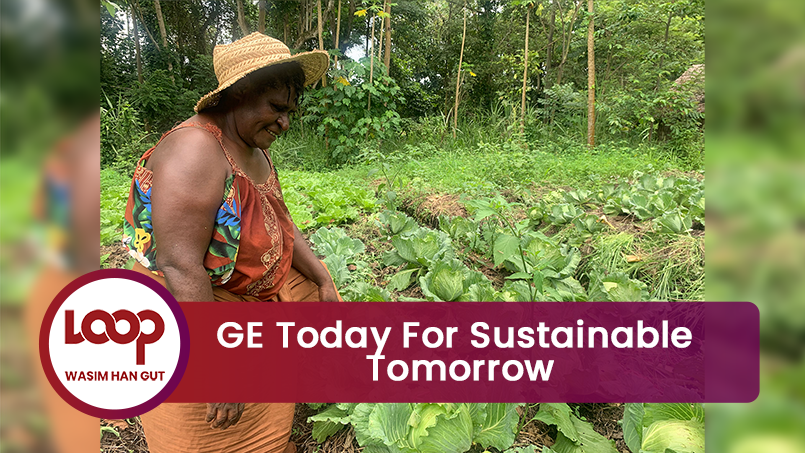
“Let us make gender equality central to climate action and resilience interventions,” says UN Women PNG Country Representative, Themba Kalua.
Papua New Guinea joined the rest of the world on 8 March in celebrating the 2022 International Women's Day (IWD) under the theme, "Gender Equality Today for a Sustainable Tomorrow".
The theme recognises and celebrates the contribution of women and girls who are leading, and contributing to a more sustainable future for all through climate action.
Kalua said women’s demand for climate action was clear. It is women and girls to be at the heart of PNG’s response to climate change.
In Kalua’s opinion, climate change and gender inequality are the two greatest sustainable development challenges of our time. How is PNG doing on these two challenges?
The 2021 Global Disaster Risk Index ranks PNG ninth among countries with the highest risk to disasters because it has an increased risk of floods, drought, and sea-level rise. Climate change is significantly shaping the lives of Papua New Guineans by influencing food security, health, and livelihoods.
Furthermore, on gender inequality, PNG ranks 161 out of 162 countries according to the United Nations Development Programme (UNDP), 2021 Gender Inequality Index. Only seven women have won seats in PNG’s National Parliament since independence in 1975, compared to over 800 men. Currently, out of 111 parliamentarians, there are no female members.
Moreover, Kalua says Gender-based violence (GBV) is rampant in PNG. Research say that two out of every three women have experienced some form of violence at some point in their lives. Women also are excluded from the economy. This concentrates women at the informal economy level with a weak social safety net during socio-economic shocks.
Gender inequality makes it impossible to effectively address the threats of climate change and achieve a sustainable future. Women in PNG play a critical role in communities, and at home in looking after livestock, growing different crops, managing various natural resources, which are a source of food, livelihood, and fuel.
Unfortunately, due to patriarchy and gender inequality in PNG, women do not own land or make decisions on natural resources. Their contribution to policy and programmes that address climate change is negligible and unrecognized.
This leaves the capacities, skills, and resources that women, girls, possess in effectively addressing climate change untapped. This can result in policies and programmes that overlook the needs of women, whose hands-on experience could help to inform strategies for more gendered targeted interventions.
The impact of climate change is a threat towards achieving sustainable development goals (SDGs), including Goal 5 on gender equality. Women and girls often bear the increased burden caused by climate related disasters. The effects of these disasters lead to gender-based violence, poverty, school dropout, forced marriages, and human trafficking, as well as water, and sanitation issues.
Displacement to temporary shelters linked to climate change leads to increased risk of sexual harassment, and other forms of violence.
Women and girls also carry the heavy burden of unpaid care work during and after disasters. For example, they take care of children, the elderly, and the sick, and they reconstruct basic shelters for their families.
This limits their ability to engage in other critical societal roles, including governance, entrepreneurship, education, and leadership. This threatens the development aspirations of PNG.
As we look forward to an equal sustainable future, women must be at the centre of climate change interventions and solutions in the ways below:
- Involve women and girls in designing and implementing climate response actions to ensure equal sharing of benefits;
- Integrate gender perspectives into climate, environmental and disaster risk reduction policies, and programmes;
- Promote women’s and girls’ full and equal participation and leadership to achieve real change led by women;
- Strengthen the prevention of, response to, and recovery from sexual and gender-based violence;
- Promote and protect women environmental human rights defenders;
- Increase financing for gender-responsive climate, environmental and disaster risk initiatives, and support women’s organizations; and
- Encourage men who are in positions of power to champion women’s meaningful participation in climate action. The Coalition of Members of Parliament against GBV and the Special Parliamentary Committee on GBV have demonstrated the power of having male champions in addressing gender inequality challenges.
“Let us break down the gender and cultural stereotypes that promote gender disparities and power imbalances in decision-making processes. Women are powerful leaders and change-makers to contribute to climate adaptation, mitigation, and solutions,” Kalua concluded.
